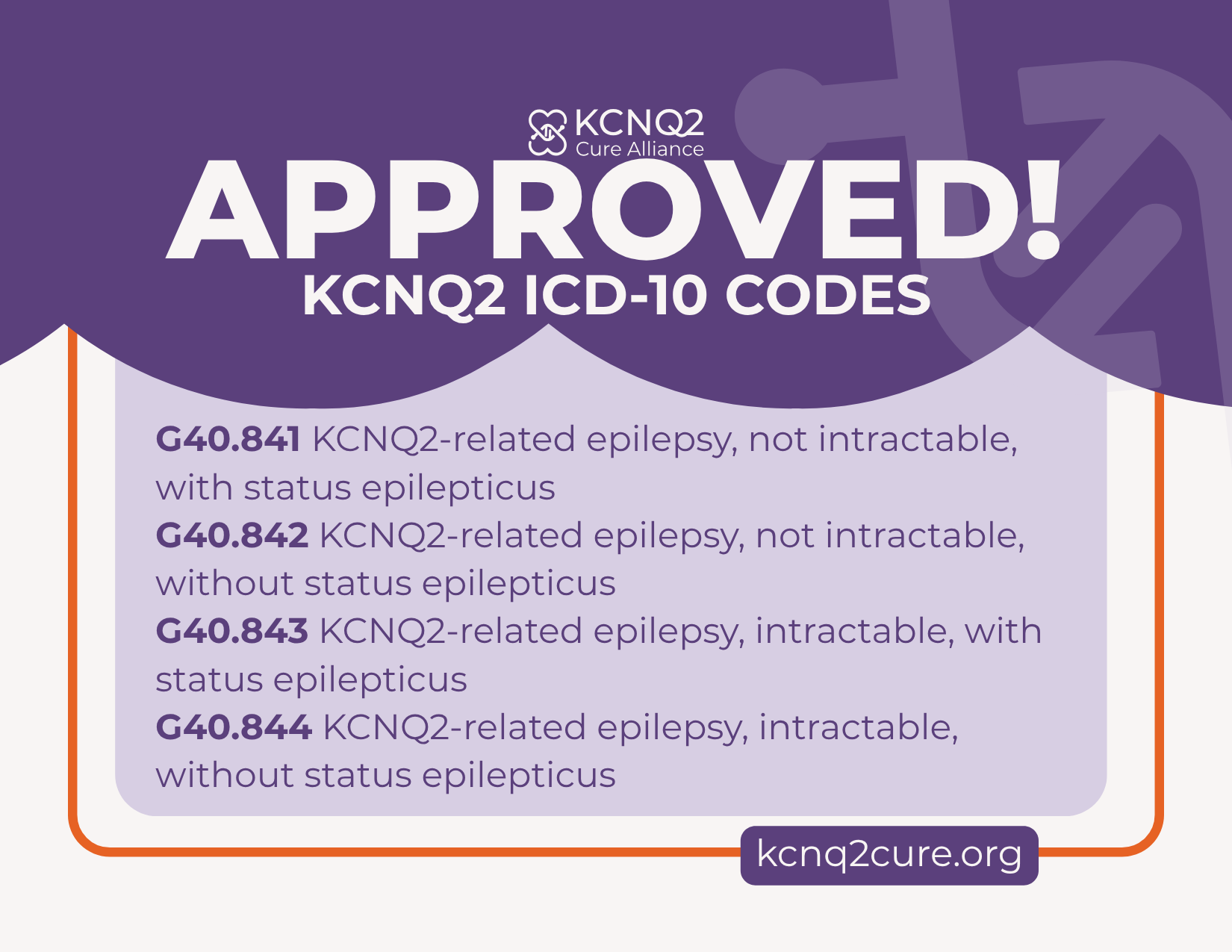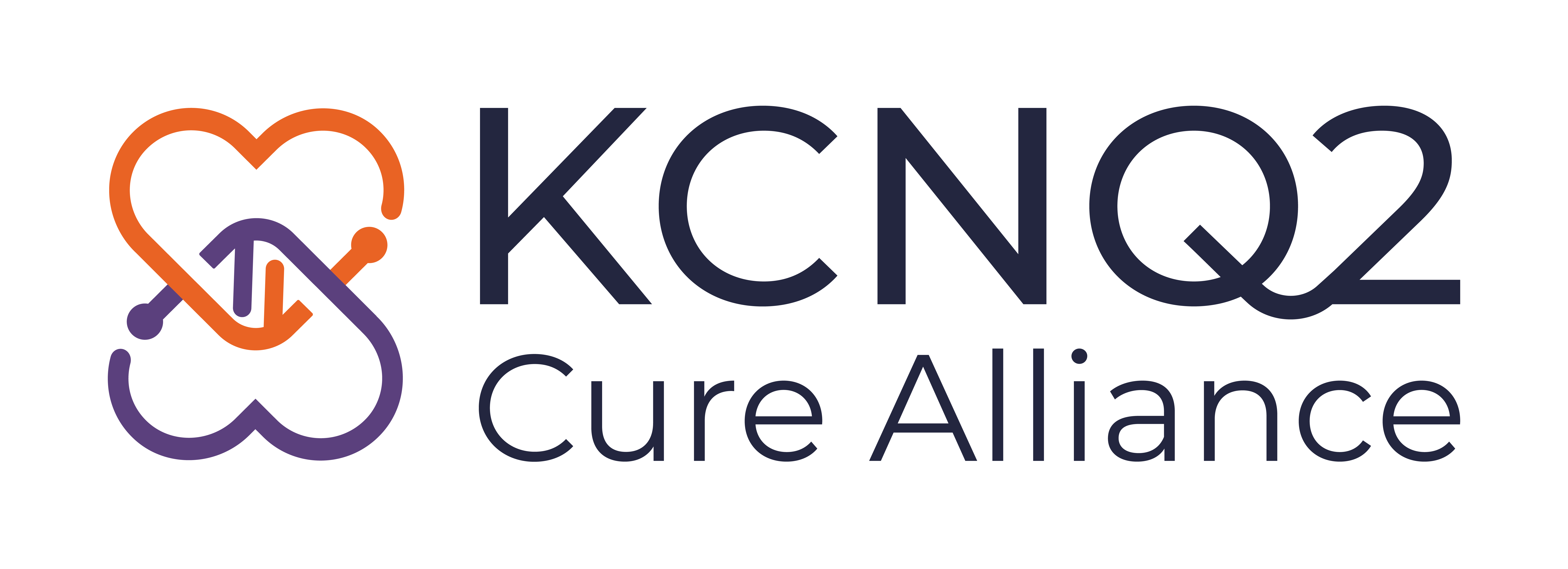KCNQ2-Related Epislepy ICD-10 Codes
KCNQ2-Related Epilepsy ICD-10 Codes Approved!
What is an ICD-10 Code?
Developed by the World Health Organization (WHO), this is the tenth version of the International Classification of Diseases (ICD), known as ICD-10. It is a system used worldwide by doctors, hospitals, insurance companies, and health organizations to classify and code all diagnoses, symptoms, and procedures. Each code is unique and provides specific information about a particular condition or disease.
The KCNQ2-related epilepsy ICD-10 codes will go into effect on October 1, 2024.
Why Are These Codes Important?
- Better Recognition of KCNQ2-related disorders: With KCNQ2-related epilepsy ICD-10 codes, KCNQ2-related epilepsy will now be more easily recognized by healthcare providers and insurers. This ensures that medical records accurately reflect the KCNQ2 diagnosis a patient has, rather than being categorized under other broader conditions.
- Improved Access to Care and Resources: These codes can make it easier for patients to obtain the medical care and therapies they need. Insurance companies often require an ICD-10 code for approval of treatments. With these new codes, there will be fewer barriers to getting the right care for your loved ones.
- Enhanced Research Opportunities: Researchers can now more accurately track and study KCNQ2-related epilepsy, which will help understand the disorder's full spectrum. This can lead to better treatments and, hopefully, a cure in the future.
- Increased Awareness and Advocacy: Specific codes raise the visibility of KCNQ2-related epilepsy within the medical community and among policymakers. This can lead to increased funding for research and support for our community.
Four new KCNQ2-Related Epilepsy ICD-10 codes
Here are the new ICD-10 codes, along with a brief explanation of each:
- G40.841 - KCNQ2-related epilepsy, not intractable, with status epilepticus
This code is used when a patient has KCNQ2-related epilepsy that can be controlled with treatment (not intractable), but they have experienced status epilepticus. Status epilepticus is a prolonged seizure or a series of seizures without recovery in between, requiring urgent medical treatment. - G40.842 - KCNQ2-related epilepsy, not intractable, without status epilepticus
This code applies to patients whose KCNQ2-related epilepsy is controllable with treatment (not intractable) and who have not experienced status epilepticus. - G40.843 - KCNQ2-related epilepsy, intractable, with status epilepticus
This code is for patients whose KCNQ2-related epilepsy is difficult or impossible to control with treatment (intractable) and who have experienced status epilepticus. - G40.844 - KCNQ2-related epilepsy, intractable, without status epilepticus
This code refers to patients with KCNQ2-related epilepsy that is difficult to control with treatment (intractable) but who have not experienced status epilepticus.
What Do These Terms Mean?
- Not Intractable: This means that epilepsy can be controlled with treatment, such as medications or other therapies. It doesn't mean the condition is cured, but it can be managed.
- Intractable: This refers to epilepsy that is difficult to control despite treatment. Patients with intractable (or drug-resistant) epilepsy is considered unmanageable after at least two appropriate medicine trials.
- Status Epilepticus: This is a condition in which a seizure lasts longer than five minutes or when one seizure follows another without the person regaining consciousness in between.
What can I do?
We request that families and caregivers share the information about the new KCNQ2-related epilepsy ICD-10 codes with all of their healthcare providers. Please ask every doctor, therapist, and hospital to add the applicable code (as described above: G40.841, G40.842, G40.843, G40.844) to your loved one’s records and insurance claims.

